Frequent persons on Georgia's street signs
countries
26 names / 148 streets
Shota Rustaveli
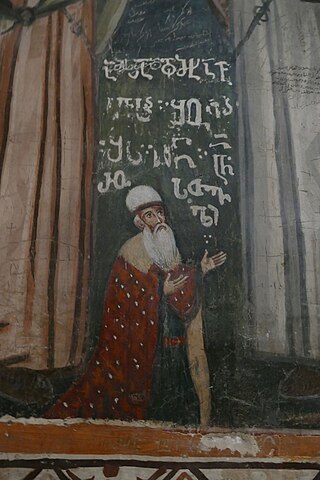 21
Shota Rustaveli, mononymously known simply as Rustaveli, was a medieval Georgian poet. He is considered to be the pre-eminent poet of the Georgian Golden Age and one of the greatest contributors to...
21
Shota Rustaveli, mononymously known simply as Rustaveli, was a medieval Georgian poet. He is considered to be the pre-eminent poet of the Georgian Golden Age and one of the greatest contributors to...
David IV
Ilia Chavchavadze
 11
Prince Ilia Chavchavadze was a Georgian public figure, journalist, publisher, writer and poet who spearheaded the revival of Georgian nationalism during the second half of the 19th century and...
11
Prince Ilia Chavchavadze was a Georgian public figure, journalist, publisher, writer and poet who spearheaded the revival of Georgian nationalism during the second half of the 19th century and...
Merab Kostava
 11
Merab Kostava was a Georgian dissident, musician and poet; one of the leaders of the National-Liberation movement in Georgia. Along with Zviad Gamsakhurdia, he led the dissident movement in Georgia...
11
Merab Kostava was a Georgian dissident, musician and poet; one of the leaders of the National-Liberation movement in Georgia. Along with Zviad Gamsakhurdia, he led the dissident movement in Georgia...
Tamar of Georgia
 7
Tamar the Great reigned as the Queen of Georgia from 1184 to 1213, presiding over the apex of the Georgian Golden Age. A member of the Bagrationi dynasty, her position as the first woman to rule...
7
Tamar the Great reigned as the Queen of Georgia from 1184 to 1213, presiding over the apex of the Georgian Golden Age. A member of the Bagrationi dynasty, her position as the first woman to rule...
Giorgi Saakadze
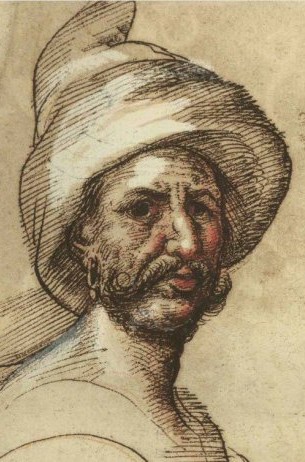 6
Giorgi Saakadze was a Georgian politician and military commander who played an important but contradictory role in the politics of the early 17th-century Georgia. He was also known as Grand Mouravi...
6
Giorgi Saakadze was a Georgian politician and military commander who played an important but contradictory role in the politics of the early 17th-century Georgia. He was also known as Grand Mouravi...
Nestor Lakoba
 6
Nestor Apollonovich Lakoba was an Abkhaz communist leader. Lakoba helped establish Bolshevik power in Abkhazia in the aftermath of the Russian Revolution, and served as the head of Abkhazia after its...
6
Nestor Apollonovich Lakoba was an Abkhaz communist leader. Lakoba helped establish Bolshevik power in Abkhazia in the aftermath of the Russian Revolution, and served as the head of Abkhazia after its...
Akaki Tsereteli
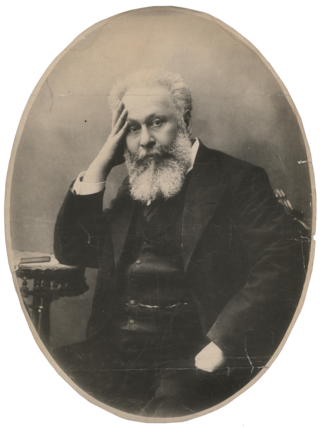 5
Count Akaki Tsereteli (1840–1915), often mononymously known as Akaki, was a prominent Georgian poet and national liberation movement figure.
5
Count Akaki Tsereteli (1840–1915), often mononymously known as Akaki, was a prominent Georgian poet and national liberation movement figure.
Vazha-Pshavela
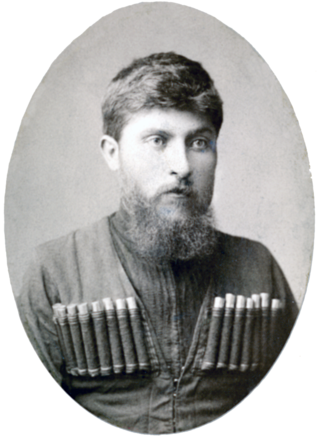 4
Vazha-Pshavela, simply referred to as Vazha, is the pen name of the Georgian poet and writer Luka Razikashvili.
4
Vazha-Pshavela, simply referred to as Vazha, is the pen name of the Georgian poet and writer Luka Razikashvili.
Tsotne Dadiani
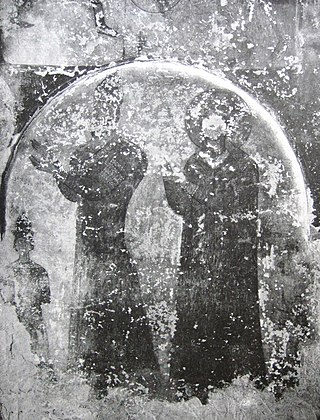 4
Tsotne Dadiani was a Georgian nobleman of the House of Dadiani and one of the leading political figures in the time of Mongol ascendancy in Georgia. Around 1246, he was part of a failed plot aimed at...
4
Tsotne Dadiani was a Georgian nobleman of the House of Dadiani and one of the leading political figures in the time of Mongol ascendancy in Georgia. Around 1246, he was part of a failed plot aimed at...
Saint Nino
 4
Saint Nino was a woman who preached Christianity in the territory of the Kingdom of Iberia, in what is now part of Georgia. Her preaching resulted in the Christianization of Iberia.
4
Saint Nino was a woman who preached Christianity in the territory of the Kingdom of Iberia, in what is now part of Georgia. Her preaching resulted in the Christianization of Iberia.
Alexander Kazbegi
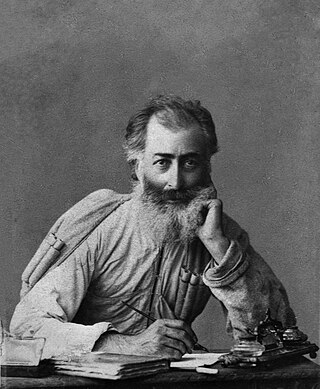 4
Alexander Kazbegi (1848–1893) was a Georgian writer, famous for his 1883 novel The Patricide.
4
Alexander Kazbegi (1848–1893) was a Georgian writer, famous for his 1883 novel The Patricide.
Efrem Eshba
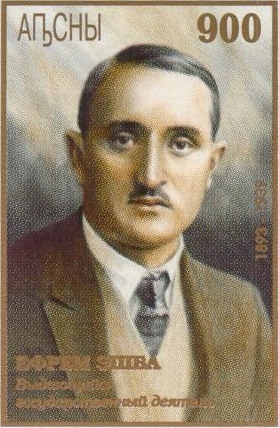 4
Efrem Alekseevich Eshba was an Abkhaz and Soviet statesman and leading Bolshevik in Abkhazia in the 1920s.
4
Efrem Alekseevich Eshba was an Abkhaz and Soviet statesman and leading Bolshevik in Abkhazia in the 1920s.
Zacharia Paliashvili
 4
Zacharia Petres dze Paliashvili, also known as Zachary Petrovich Paliashvili, was a Georgian composer. Regarded as one of the founders of the Georgian classical music, his work is known for its...
4
Zacharia Petres dze Paliashvili, also known as Zachary Petrovich Paliashvili, was a Georgian composer. Regarded as one of the founders of the Georgian classical music, his work is known for its...
Vakhtang I of Iberia
 4
Vakhtang I Gorgasali, of the Chosroid dynasty, was a king (mepe) of Iberia, natively known as Kartli in the second half of the 5th and first quarter of the 6th century.
4
Vakhtang I Gorgasali, of the Chosroid dynasty, was a king (mepe) of Iberia, natively known as Kartli in the second half of the 5th and first quarter of the 6th century.
Giorgi Leonidze
 4
Giorgi Leonidze was a Georgian poet, prose writer, and literary scholar.
4
Giorgi Leonidze was a Georgian poet, prose writer, and literary scholar.
Samson Chanba
 4
Samson Kuagu-ipa Chanba was a pioneering writer and statesman from Abkhazia killed in Joseph Stalin's Great Purge.
4
Samson Kuagu-ipa Chanba was a pioneering writer and statesman from Abkhazia killed in Joseph Stalin's Great Purge.
Irakli Abashidze
 3
Irakli Abashidze was a Georgian poet, literary scholar and politician.
3
Irakli Abashidze was a Georgian poet, literary scholar and politician.
Koba Zakadze
 3
Koba Tsakadze is a Georgian ski jumper who competed from 1955 to 1972 for the Soviet Union. He won two events at Four Hills Tournament with one in 1955-56 (Innsbruck) and the other in 1960-61...
3
Koba Tsakadze is a Georgian ski jumper who competed from 1955 to 1972 for the Soviet Union. He won two events at Four Hills Tournament with one in 1955-56 (Innsbruck) and the other in 1960-61...
Alexander Pushkin
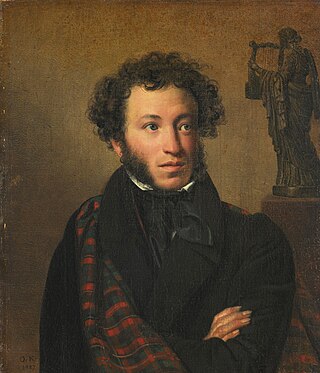 3
Alexander Sergeyevich Pushkin was a Russian poet, playwright, and novelist of the Romantic era. He is considered by many to be the greatest Russian poet, as well as the founder of modern Russian...
3
Alexander Sergeyevich Pushkin was a Russian poet, playwright, and novelist of the Romantic era. He is considered by many to be the greatest Russian poet, as well as the founder of modern Russian...
Egnate Ninoshvili
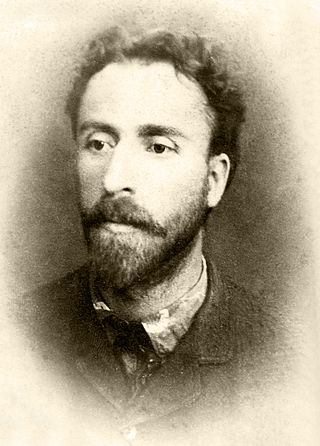 3
Egnate Tomas dze Ninoshvili was a Georgian writer and social democratic activist.
3
Egnate Tomas dze Ninoshvili was a Georgian writer and social democratic activist.
Ketevan the Martyr
 3
Ketevan the Martyr was a queen consort of Kakheti, a kingdom in eastern Georgia. She was regent of Kakheti during the minority of her son Teimuraz I of Kakheti from 1605 to 1614. She was killed at...
3
Ketevan the Martyr was a queen consort of Kakheti, a kingdom in eastern Georgia. She was regent of Kakheti during the minority of her son Teimuraz I of Kakheti from 1605 to 1614. She was killed at...
Alexander Griboyedov
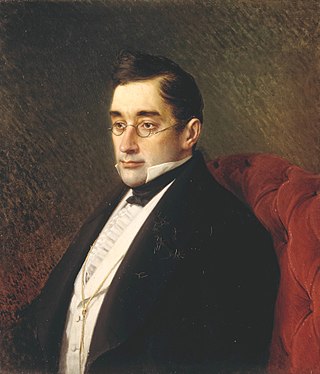 3
Alexander Sergeyevich Griboyedov, formerly romanized as Alexander Sergueevich Griboyedoff, was a Russian diplomat, playwright, poet, and composer. His one notable work was the 1823 verse comedy Woe...
3
Alexander Sergeyevich Griboyedov, formerly romanized as Alexander Sergueevich Griboyedoff, was a Russian diplomat, playwright, poet, and composer. His one notable work was the 1823 verse comedy Woe...
Davit Guramishvili
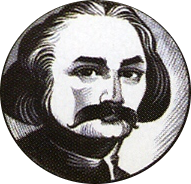 3
Prince Davit Guramishvili was a Georgian poet of pre-Romantic Georgian literature. He is known for writing Davitiani, an autobiographical book of poetry that recounts his years serving abroad in the...
3
Prince Davit Guramishvili was a Georgian poet of pre-Romantic Georgian literature. He is known for writing Davitiani, an autobiographical book of poetry that recounts his years serving abroad in the...
Zhiuli Shartava
 3
Zhiuli Shartava was a Georgian politician and National Hero who served as the Head of the Government of the Autonomous Republic of Abkhazia and was killed by Abkhaz militants during the ethnic...
3
Zhiuli Shartava was a Georgian politician and National Hero who served as the Head of the Government of the Autonomous Republic of Abkhazia and was killed by Abkhaz militants during the ethnic...
Sergei Dbar
 3
Sergei Dbar was a prominent military leader of Abkhazia.
3
Sergei Dbar was a prominent military leader of Abkhazia.